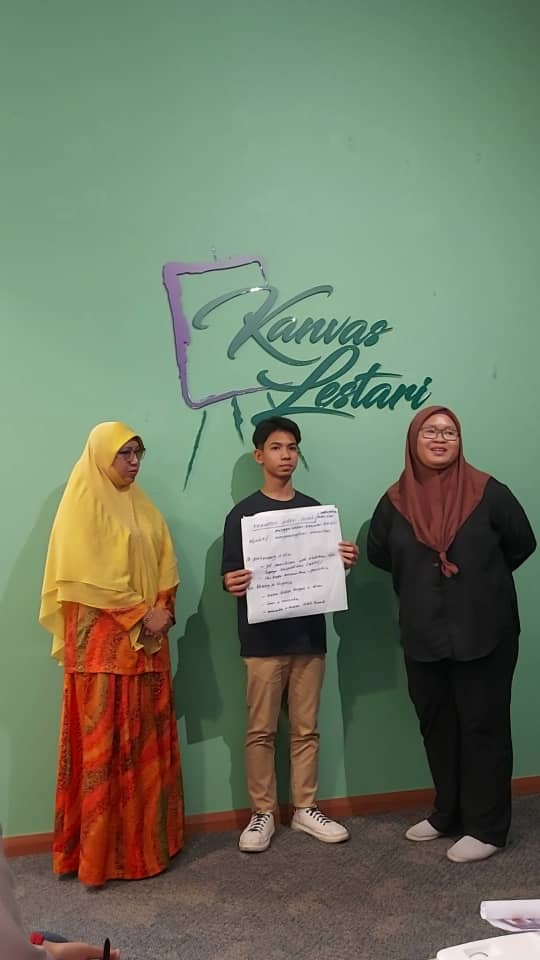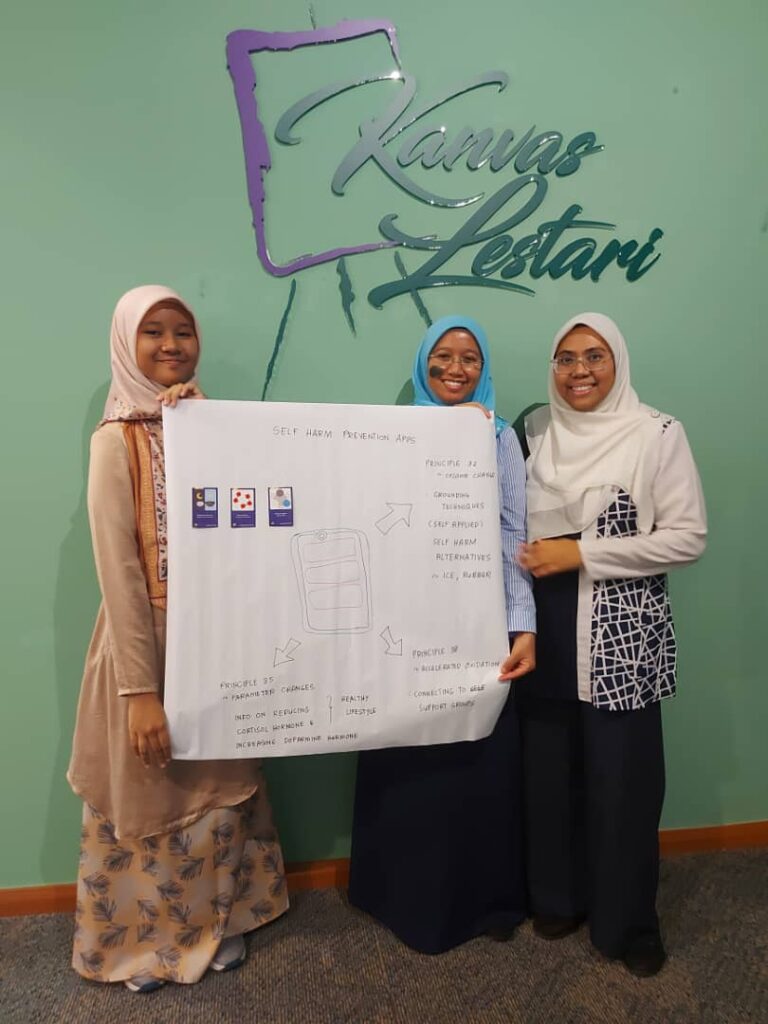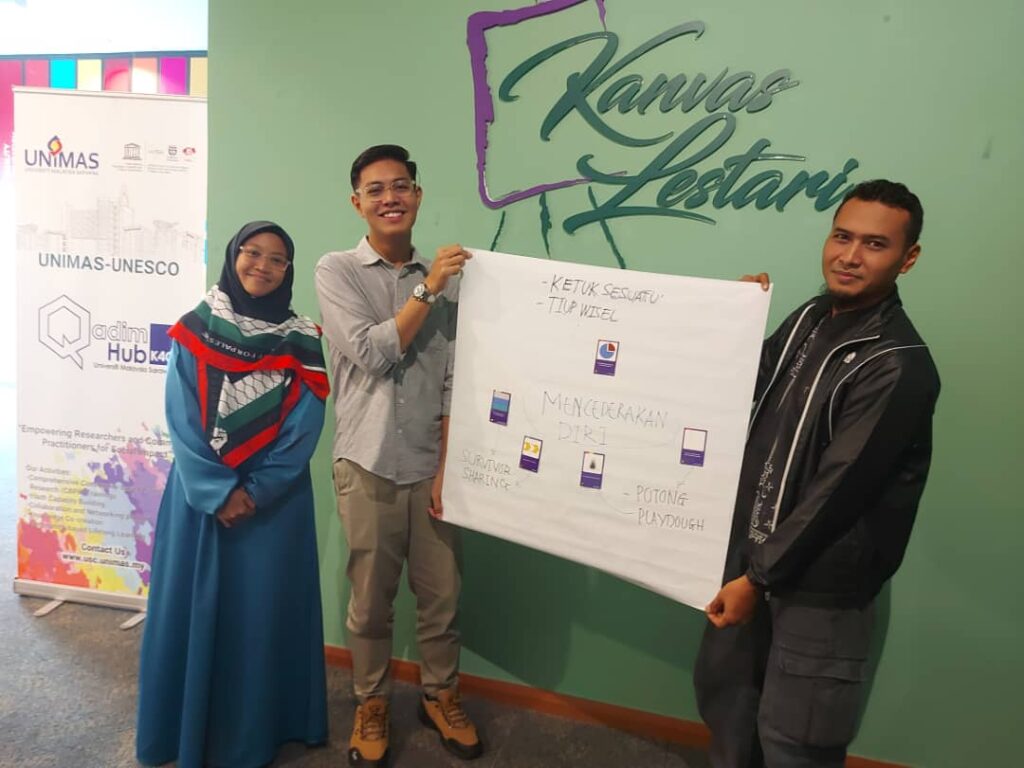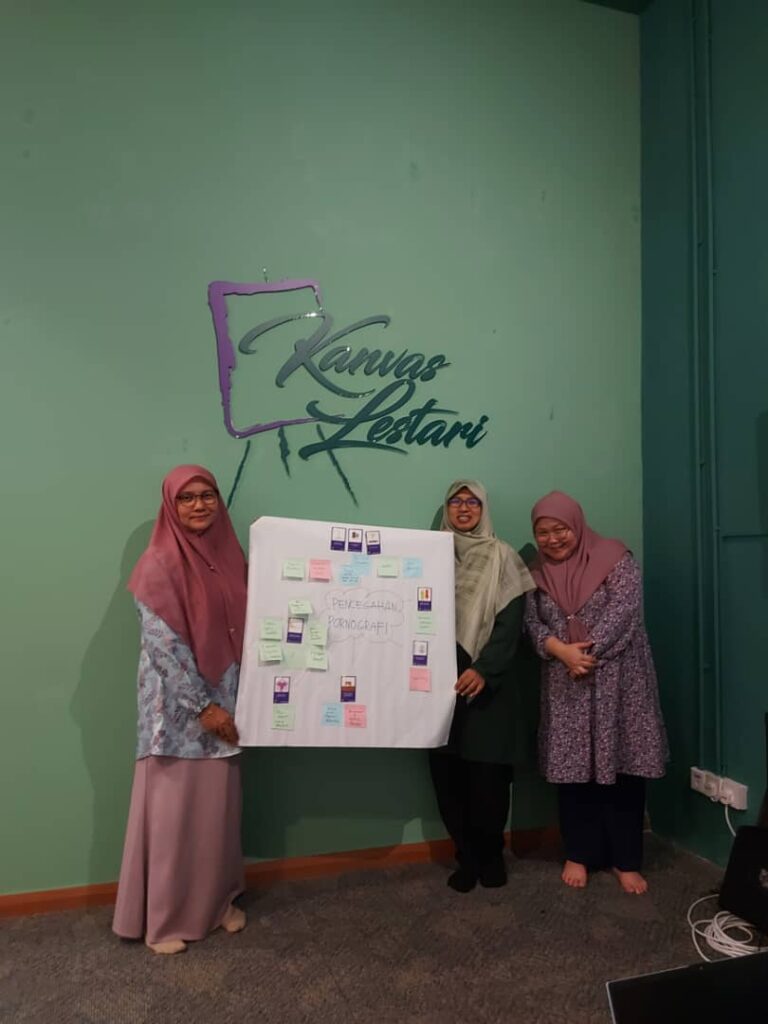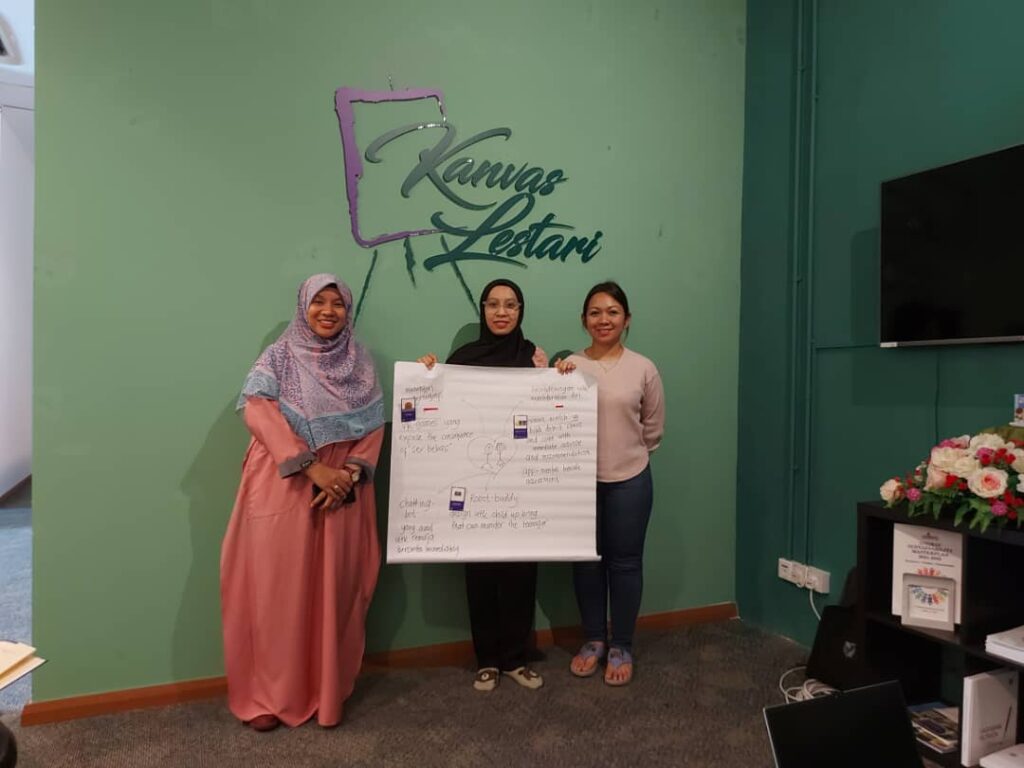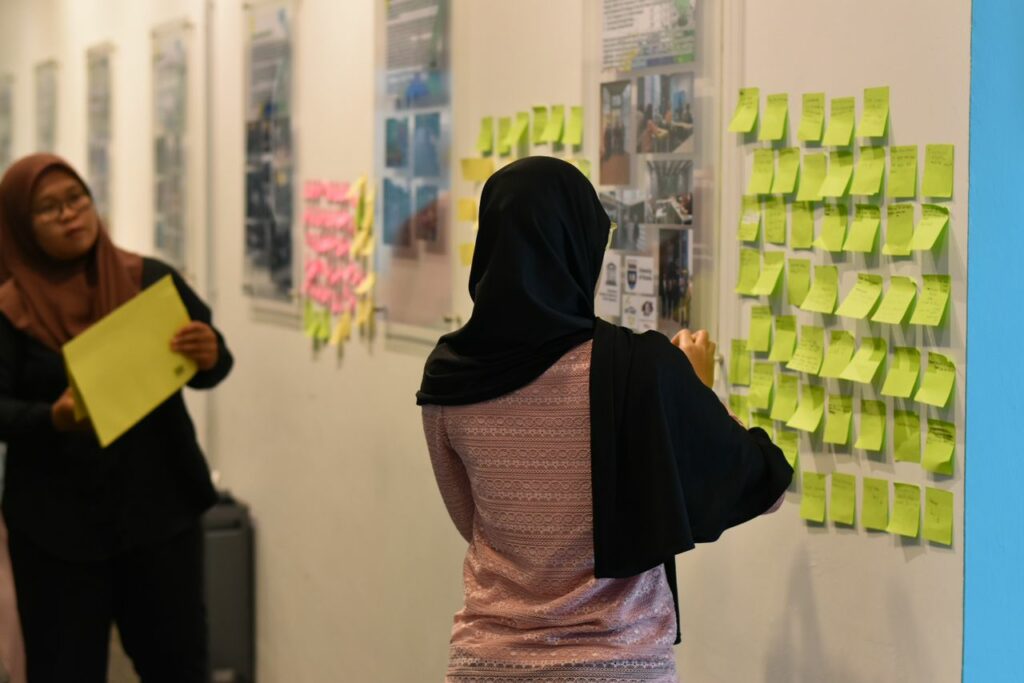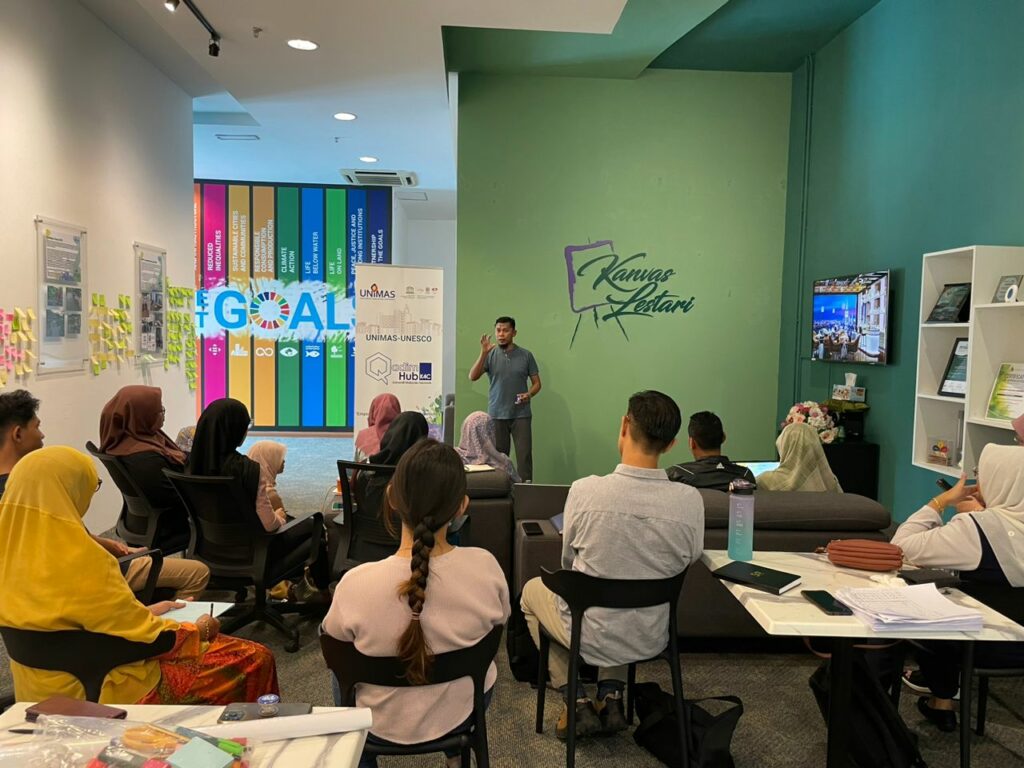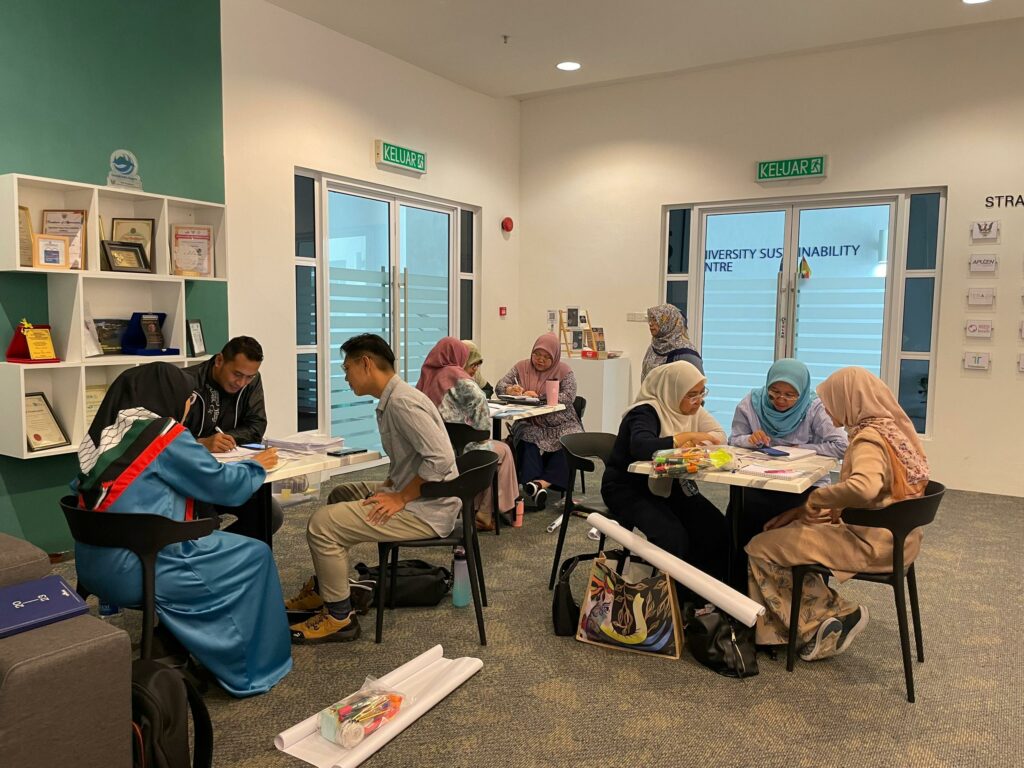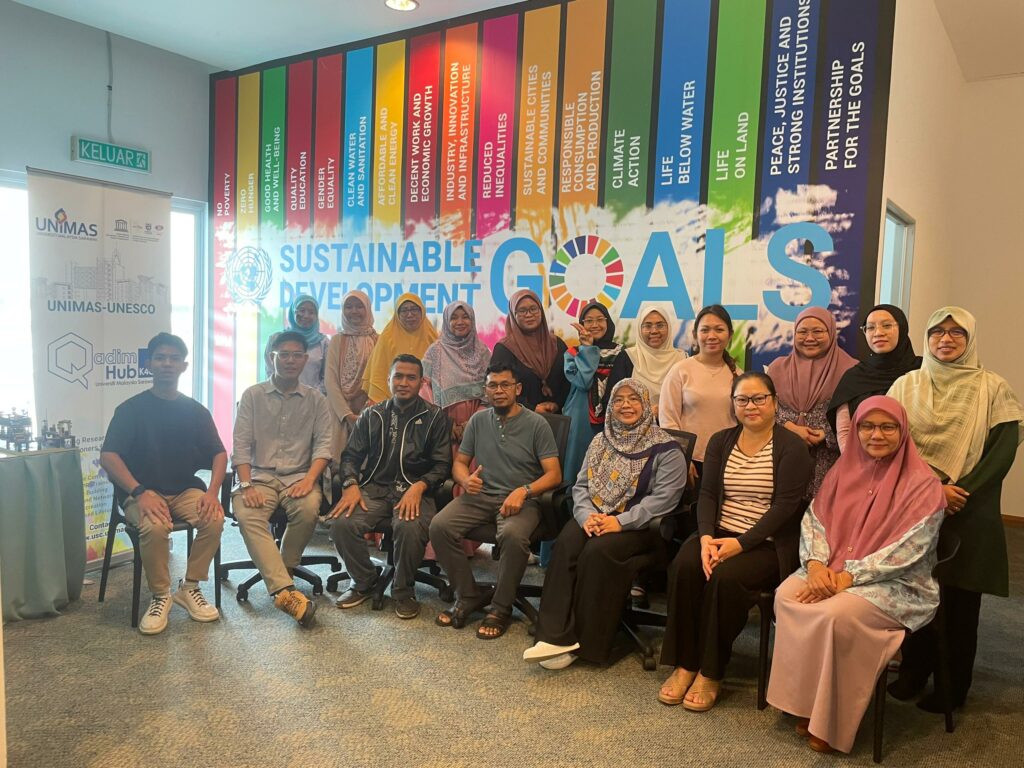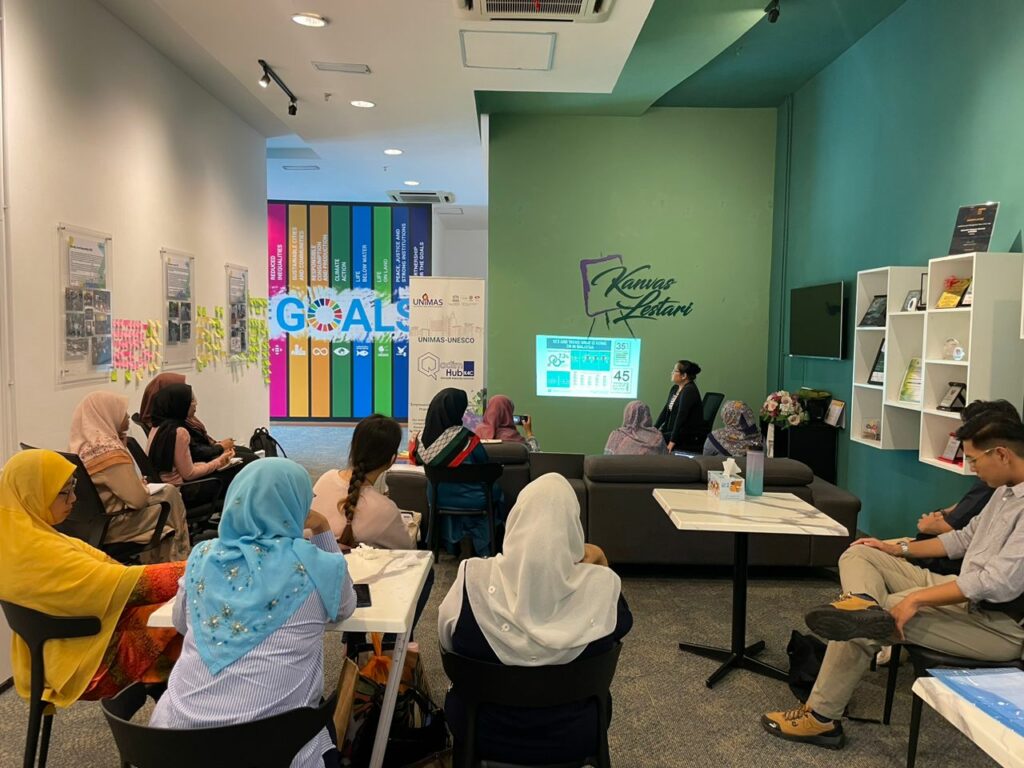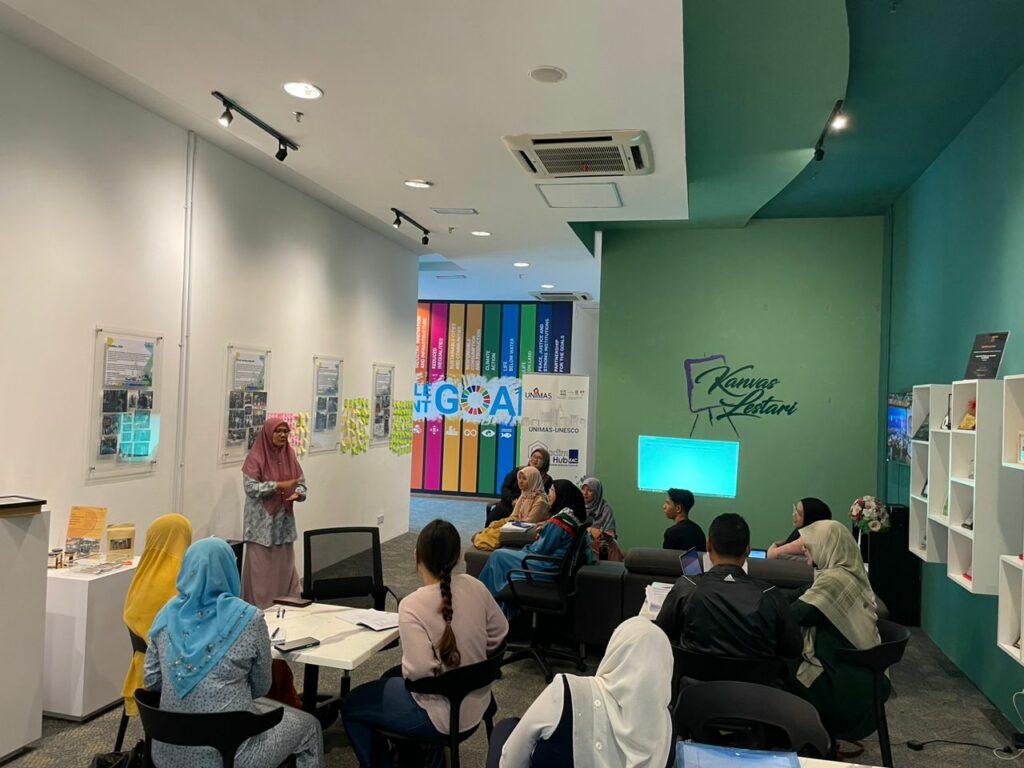
KOTA SAMARAHAN, 10 MARCH 2024: There is a small portion of society that views sexual education as a taboo subject and an activity that promotes sexual relationships, especially among teenagers. However, this is a misconception.
A survey on teenagers by the Ministry of Health Malaysia in 2017 showed that 7.3% of teenagers aged between 13 and 17 had engaged in sexual relationships. The study also revealed that 35% of boys and 27% of girls had engaged in sex at the age of 14, while 21% of boys and 11% of girls had engaged in sex with multiple partners. These statistics are worrying because most teenagers do not receive guidance and explanations about sexual education. This situation indicates that teenagers need to be exposed to sexual education from an early age to avoid negative symptoms such as free sex, promiscuity, unwed pregnancies, or more frighteningly, engaging in unnatural sexual relationships.
Qadim Hub, University Sustainability Center, Universiti Malaysia Sarawak (UNIMAS) collaborated with Pusat Aktiviti Kanak-Kanak (PAKK) Desa Ilmu to organize a Community Mobilization Workshop for children’s sexual education as one of the efforts to empower the community to raise awareness about the importance of sexual education for teenagers. The one-day workshop held at the University Sustainability Center, UNIMAS on 10 March 2024 was facilitated by two speakers and attended by 15 participants. The purpose of organizing this workshop was to gather community mobilizers and expose them to effective strategies for planning programs and activities related to sexual education.
Associate Professor Dr. Halikul Lenando, a lecturer at the Faculty of Computer Science and Information Technology (FCSIT) and a fellow at Institute of Social Informatics and Technological Information (ISITI), UNIMAS, shared his experience using the TRIZ application, or Theory of Inventive Problem Solving, as an innovative thinking method. According to him, “awareness of effective approaches to combating sexual problems in society, especially among teenagers, is important for the well-being of society.”
“Exposure to TRIZ applications helps participants understand, think of sustainable ideas, and solve sexual education problems using only the power of the mind, creativity, and innovation,” he added. As a simulation, workshop participants had the opportunity to discuss issues of teenagers watching pornography and self-harming and propose solutions using TRIZ techniques based on 40 inventive principles.
Next, Dr. Enucie Melissa anak Joseph, Health Officer of the Division, Sarawak State Health Department, also shared her knowledge and experience about reproductive health and sexual education. Dr. Eunice Melissa said that early sexual symptoms among teenagers stem from shallow knowledge about sexuality. Furthermore, the influence of social media strongly encourages teenagers to engage in sexual activities without considering the consequences.
To empower community mobilizers in providing sexual education to the public, Dr. Eunice Melissa suggested that the public needs to understand the importance of sexual education and its relevance to teenagers.
“The importance and necessity of sexual education must be emphasized because it covers human anatomy and physiology, sex hormones, sexually transmitted diseases through social relationships, gender and sexuality, mental health and well-being, reproductive health, and cultural and ethical issues,” explained Dr. Eunice Melissa.
Chairperson of Pusat Aktiviti Kanak-Kanak, Kota Samarahan (PAKK), Mrs. Adillah Ismail said that empowering the community is very important as one of the steps that can be taken by the community in addressing this issue.
“The involvement of members from various backgrounds and expertise makes this community mobilization group capable of doing something effective and positive for the community,” she said during her speech at the workshop. Pusat Aktiviti Kanak-Kanak (PAKK) Desa Ilmu was established as a comprehensive, systematic, and effective effort to prevent child abuse and neglect in Kota Samarahan. PAKK is a support service organized by the Child Protection Team (PPKK) that serves as a support system for child protection services under the Child Protection Act 2021.
Meanwhile, Qadim Hub is part of the global K4C Hub Consortium, an initiative by the UNESCO Chair for Community-based Research and Social Responsibility in Higher Education. Qadim Hub is a center of excellence for the implementation of community-based participatory research (CBPR) and training programs.
